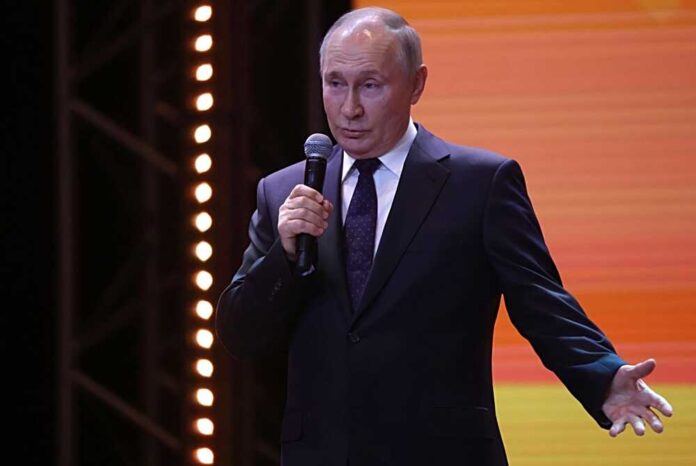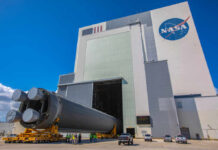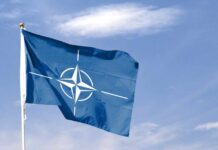
Russian President Vladimir Putin has revealed plans to station tactical nuclear weapons in neighboring Belarus, marking the first time since the mid-1990s that Moscow will have based such arms outside its borders. The decision comes in response to Britain’s recent agreement to provide Ukraine with armor-piercing rounds containing depleted uranium, which Russia has falsely claimed have nuclear components.
Belarusian President Alexander Lukashenko has long requested the weapons, and Putin announced on Russian state television that the construction of storage facilities for the weapons in Belarus would be completed by July 1. Russia and Belarus share close military ties, and Belarusian territory was used to send troops into Ukraine. In January, the two nations enhanced their joint military training efforts.
#DEVELOPING – Russian President Vladimir Putin announced plans on Saturday to station tactical nuclear weapons in neighboring Belarus, a warning to the West as it steps up military support for Ukraine. https://t.co/cpCLPqB8lC
— KWTX News 10 (@kwtx) March 25, 2023
Tactical nuclear weapons are used for specific targets on traditional battlefields instead of weapons capable of wiping out cities. The exact number of such weapons in Russia’s arsenal is unknown, as that intelligence remains shrouded in Cold War secrecy. However, experts consider this development significant, as Russia has previously taken pride in not deploying nuclear weapons outside its borders, unlike the United States.
In his televised statement, Putin drew comparisons between Russia’s actions and those of the United States, which has long deployed tactical nuclear weapons on the territory of its allied countries. However, he emphasized that Russia would not violate any international obligations on the non-proliferation of nuclear weapons.
The United States has reacted cautiously to the news. A senior Biden administration official noted that Russia and Belarus had been discussing such an agreement for the past year and that there were no signs Moscow planned to use its nuclear weapons. The official also said that the U.S. had not seen any reason to adjust its strategic nuclear posture and remains committed to the collective defense of the NATO alliance.
Hans Kristensen, director of the nuclear information project at the Federation of American Scientists, believes that stationing the weapons in Belarus is part of Putin’s strategy to intimidate NATO, even though there is no military utility. The International Campaign to Abolish Nuclear Weapons has also expressed concern about the dangerous escalation, warning that the likelihood of miscalculation or misinterpretation is exceptionally high in the ongoing conflict in Ukraine.
Despite the close military relationship between Russia and Belarus, Kyiv believes there are currently not enough forces in Belarus for an offensive and that Lukashenko would prefer to keep his troops out of the war, despite pressure from Moscow.
As part of the announced deal, Russia will complete the construction of a storage facility for tactical nuclear weapons in Belarus by July 1. Russia has already stationed ten aircraft in Belarus capable of carrying tactical nuclear weapons and transferred several Iskander tactical missile systems that can launch nuclear weapons. Experts such as Nikolai Sokol, a senior fellow at the Vienna Center for Disarmament and Non-Proliferation, see this as a significant move and a major change in Russia’s policy.



























